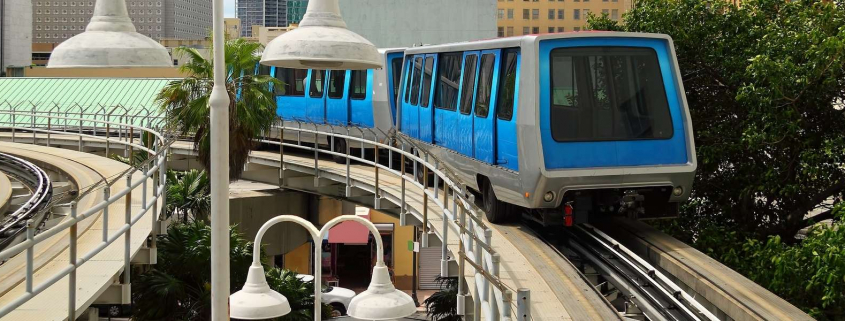Miami-Dade County’s new transit director has big plans.
Alice Bravo, Miami’s former deputy city manager, has several short-term projects in mind, but her grand vision is sure to raise eyebrows in South Florida: Eventually, she hopes that the plans that she and her team put in place in the next few years will make buying a car “optional” for Miami’s next batch of commuters.
“It’ll take time, but we have to take advantage of this enthusiasm to make Miami a car-optional city one day,” Bravo tells New Times. “It’s apparent that we have a younger generation that is not interested in having a car and wants to use public transportation. We have to make sure there is a system there for them to satisfy their needs.”
How the heck will she do that? Bravo admits it’s a long-term goal, but in the near future, she says, there are projects that will immediately relieve congestion. She points to the often-out-of-sync traffic signal system. She says by creating a system that can monitor intersection congestion and adapt on a moment’s notice depending upon traffic flow can optimize efficiency. Once a system is in place, she says, it can become centralized and connected to the bus system.
“We want to get all of our systems working together,” Bravo said.
For the longer term, Bravo is concentrating on “connectivity points” — places that are convenient for commuters in different suburbs. She wants to turn those connectivity points into stations and work to bring people to those stations as easily as possible (whether it be adding sidewalks or bus lanes). From these stations, she wants to work with local municipalities to create shuttles to quickly take people to other hubs around the city.
And to really tackle the east-west transportation debacle, Bravo plans to work with various agencies to put buses on existing highways.
The top-tier transportation shakeup comes after Miami-Dade’s much-criticized former transit director, Ysela Llort, resigned last month. She had overseen the county’s transportation since county Mayor Carlos Gimenez was elected in 2011. Even though Llort was credited with connecting the airport line to Metrorail, many observers have pointed to the lack of east-west and late-night public transportation options.
“The bus/train fares keep increasing, and the conditions get worse and worse. How is this working for [us], the tax-paying, hard-working residents?” one online petition to Llort declares. “Find the money, make public transit a priority, and fix our city.”
Gimenez, in a move to tackle public transportation “more aggressively,” hired Bravo to replace Llort. Bravo left her previous post as deputy city manager, where she oversaw six departments, including public transportation. Bravo is credited with shepherding in Metromover’s Brickell extension and the city’s free trolley system.
Born and raised in Westchester, Bravo remembers driving past Metrorail as it was being built in the mid-1980s. On the weekends, her family would sit in traffic on South Dixie Highway on their way to Key Biscayne. From the car window, she stared at the colossal concrete beams and steel rails. It fascinated Bravo, who was only a tween, and planted the seed for flashy transportation ideas to come.
Bravo went on to study civil engineering at the University of Miami before earning her MBA from Florida International University. She worked first as an engineering consultant on transportation projects for 13 years. Then she went to work for the Florida Department of Transportation, where she was in charge of implementing well-known projects such as 95 Express and the PortMiami tunnel. She was then hired by the City of Miami to work in capital improvements and transportation. In 2011, she was promoted to assistant to the deputy city manager. Two-and-half years later, she was promoted to deputy city manager.
Now, Bravo is trying to put that experience to use by transforming Miami-Dade’s transportation policies.
“The scope of transportation for the county is very large and affects millions of people,” Bravo says. “The mayor’s vision is to combine the public transits with the roadway through public works to make sure all of our transportation systems are coordinated to maximize efficiency.”
Bravo wants to make sure the current transportation systems are clean, safe, and reliable. To that end, she’s been studying the technology and transportation systems in other metropolitan areas in the States and Europe. “There are a lot of different groups with different ideas. Everyone needs to come together to formulate these plans that’ll span out 20 years. It’s not built overnight, but over many years,” she says. “But we need to turn a corner and start acting.”
In the meantime, Bravo is excited about taking Metrorail to work. “Our office is just north of Government Center,” she notes.
Source: Miami New Times

